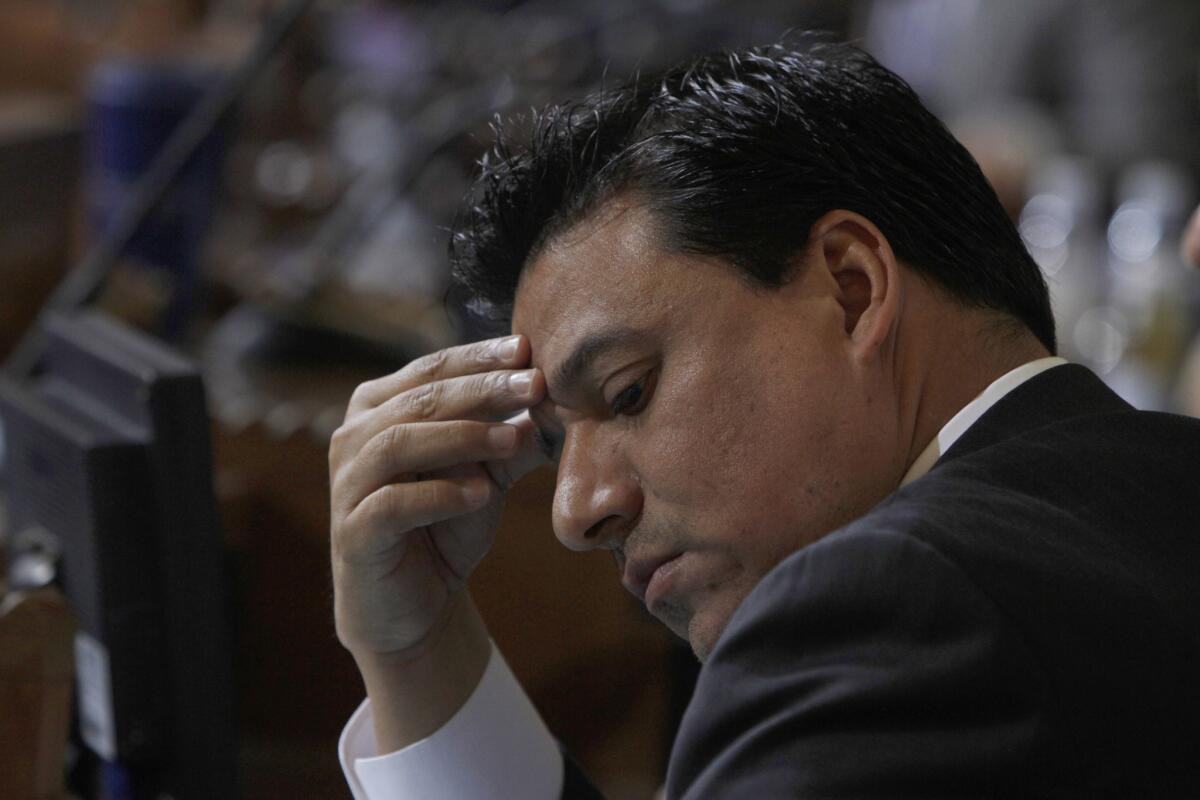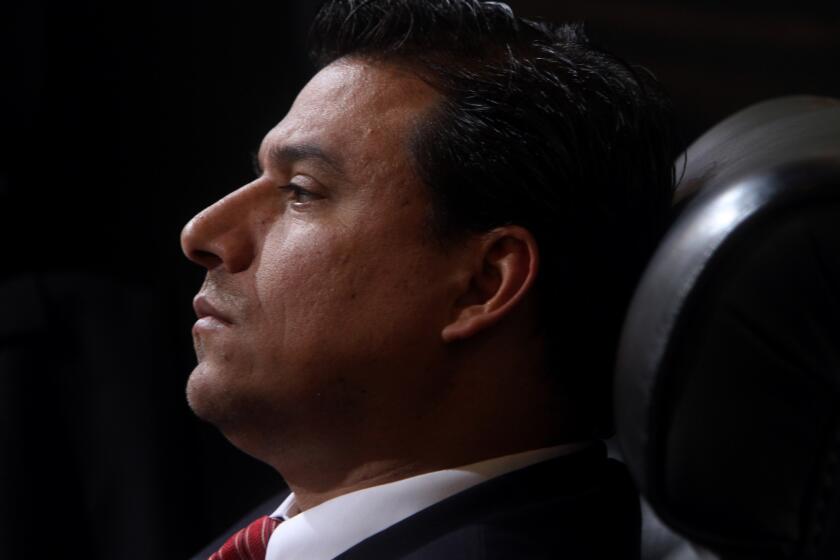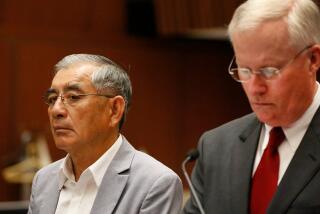Real estate firm puts executive on leave amid Jose Huizar pay-to-play probe

A San Francisco-based real estate firm has put one of its executives on leave amid the federal corruption probe that led to the arrest of Los Angeles City Councilman Jose Huizar.
Carmel Partners, the developer of an Arts District project mentioned in the criminal complaint against Huizar, said in a statement that “there are a number of concerning allegations outlined in the complaint that require investigation” and that it plans to take “appropriate disciplinary actions as needed” against the executive.
The company declined to identify the executive or answer questions about whether he or she was continuing to be paid while on leave. In a statement, the firm said that the members of its executive and management committees “did not knowingly participate in any pay-to-play scheme outlined in the U.S. Attorney’s charges against Mr. Huizar.”
Carmel Partners also said there were “numerous false and/or misleading conclusions, suppositions, innuendos, and opinions in the complaint” against Huizar, but did not provide further details about which statements it believed to be false. A U.S. Department of Justice spokesman declined to comment on the Carmel Partners statement.
Can you imagine an easier job than being a federal investigator assigned to L.A. City Hall, where a pay-to-play culture has been entrenched for years?
Huizar faces a racketeering charge stemming from allegations that he ran a sprawling pay-to-play scheme in which real estate developers were shaken down for bribes and political donations. His attorneys said last week that the councilman “intends to respond to the government’s allegations in court.”
Although federal prosecutors did not name Carmel Partners in their complaint, The Times and other news outlets identified its 520 Mateo project as one of the developments mentioned in the corruption case based on details included by prosecutors, including the dates of key hearings at City Hall.
In the criminal complaint, prosecutors alleged that Huizar schemed with the developer of the unnamed Arts District project and its lobbyist to provide “direct and indirect financial benefits” to the councilman in exchange for his help at City Hall.
An FBI investigator said in an affidavit that the company had provided tens of thousands of dollars in donations to political action committees tied to Huizar and that one of its executives gave the councilman damaging information about two former aides who sued him for harassment.
Carmel Partners did not respond to questions about whether its executive had provided opposition research on Huizar aides, but said that its donations to political action committees, also known as PACs, were legal.
“We believe that the accusation that donations to a PAC were the reason 520 Mateo gained approval is incorrect and it diminishes the more than four years of work we did with the community to achieve its support,” the company said, adding that “it is our strong view that the project would have received that broad support regardless of any of the legal PAC contributions we made.”
Federal prosecutors also argued that the Arts District project ended up having much less affordable housing because of changes backed by Huizar. At a press conference, U.S. Atty. Nick Hanna said that “thanks to Mr. Huizar, the development would have minimal affordable housing units.”
The City Planning Commission had recommended that 11% of the housing units at 520 Mateo go to “very low income” households. Huizar instead recommended that only 6% of the units be set aside for “moderate income” residents and that 5% of its commercial floor area be reserved as affordable work space.
Carmel Partners said that the amount of affordable housing at 520 Mateo had “evolved substantially,” but that such changes were “mostly driven by the community,” which wanted a more expensive kind of construction, “even if it meant that due to increased construction costs affordable units as a percentage of the overall project would be reduced.”
Protests over police brutality and criminal justice reform intensify race for L.A. district attorney
The battle between Jackie Lacey and George Gascón to lead the nation’s largest local district attorney’s office is already being influenced by the fallout of national calls to change American policing.
The company added that it had made a $2.25-million payment to a city fund for affordable housing as part of a “community benefits package” for the project.
Carmel Partners also said it was exploring legal action against a lobbyist involved with the project, “as the complaint revealed to us that he was not acting exclusively in Carmel’s best interests and was deceptive in conduct and his advice.”
Lobbyist Morrie Goldman, whom The Times previously identified as being mentioned in the criminal complaint against Huizar, did not respond to a request for comment.
More to Read
Sign up for Essential California
The most important California stories and recommendations in your inbox every morning.
You may occasionally receive promotional content from the Los Angeles Times.












